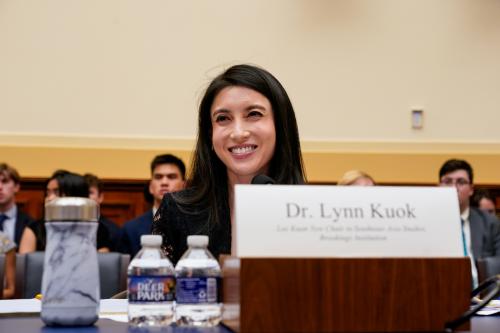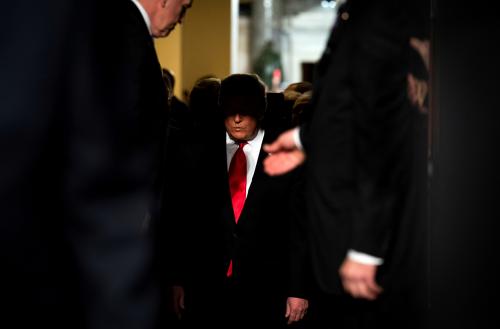As President Barack Obama begins his first official visit to Israel, here are five things he can do to make his trip worthwhile.
1. Reintroduce himself to the Israeli public.
This is the most important thing Obama needs to do during this trip. It will be a central aspect of this visit because the Israeli public has the impression that he doesn’t like them very much. In his first term they felt his coolness—he didn’t talk to them, he didn’t visit them, and he seemed to them to want to distance the United States from Israel in order to curry favor with the Arab world.
This is an unfair perception of him, but it is one that persists in Israel. Last Friday, a reputable poll in Ma’ariv (an Israeli Hebrew daily) showed that Obama has a 10 percent approval rating among the Israeli public. He doesn’t deserve that. And with such a low approval rating, he loses leverage on Bibi Netanyahu. An Israeli prime minister who confronts a popular American president will be punished politically by the Israeli public—but one who stands up to a president who is unpopular will actually go up in the polls, and that is precisely what has happened in the past four years.
He will have an opportunity in his speech to Israeli youth on Thursday evening to reverse the Israeli public’s perception of him. He needs to remind them of his strong record in support of Israel’s security and against its delegitimization at the United Nations and against Iran’s nuclear program. And he should explain to them that because he cares about their security, because he has their back, and because he will be in the trenches as he has been whenever they’ve faced a problem on his watch—that they also need to trust him when he says that he wants to help them solve their ultimate existential problem, which is the conflict with the Palestinians.
2. Reach an understanding on Iran with Netanyahu.
The need to reach an understanding with Netanyahu on Iran is also essential. They agree that containment is not an option and the negotiations route should be given every chance to succeed. But if negotiations fail, they need to discuss the contingency of a military option. The understanding needs to be not just that the U.S. can handle the problem more comprehensively than Israel alone, but also that the prime minister of Israel needs to be doing something as well. That is, beyond trusting Obama to take care of the problem, Netanyahu needs to be moving on the peace process with Palestine because if it comes to war with Iran, in the ramp-up to military action it will be absolutely essential that the U.S. and Israel are seen to be making every effort to make peace with the Palestinians.
3. Build a relationship of trust with Mahmoud Abbas.
The Palestinian dimension of this visit has received little attention. When Obama travels to Ramallah, he needs to rebuild his relationship with President Abbas. Obama has a jaundiced view of Mahmoud Abbas (Abu Mazen), in part due to the way in which he has presented preconditions for going into negotiations and in part because of his rejection of the president’s personal request that he forego action at the United Nations. They need to reach a relationship of understanding and trust that has been absent to this point. Hopefully, Abu Mazen will make it clear that he’s ready now to move into negotiations, and the president should make it clear that he’s serious about helping him and ready to guarantee the outcome of a viable Palestinian state living in peace with a secure Jewish state.
4. Establish a “balance of deterrence” between Israeli settlement activity and Palestinian unilateral moves in the U.N. or the International Criminal Court.
The president should try to lay the groundwork for an understanding on settlement activity. As much as he wants to avoid the issue, in the new Israeli government he will meet, there is a settler in charge of the Housing Ministry, and the new defense minister and deputy defense minister are strong supporters of settlement activity. So there’s a good chance that there will be even more serious settlement activity than we’ve seen under the previous Netanyahu government. If he says nothing, they will take it as a green light.
Instead, Obama should say that if Israel restrains settlement activity unilaterally (rather than through negotiations), the U.S. will be able to go to Abu Mazen and insist that he avoid any unilateral actions at the U.N. and the International Criminal Court in return. In this way, a type of mutual deterrence can be established.
5. Empower Secretary of State Kerry.
John Kerry arrived in Israel a day ahead of President Obama and is also scheduled to return to Israel after the president returns home to follow up with Netanyahu on an initiative to jump-start the peace process. Kerry has a very steep mountain to climb; he cannot succeed unless the leaders and their publics in the region come to understand that the secretary of State is doing the president’s bidding. They have become so used to presidential involvement that they will take the secretary of State seriously only if they know that the president is behind him and not just indulging his desire to make peace while Obama pivots to Asia. Publicly and privately, the president needs to signal in unequivocal language that he is delegating the responsibility to his secretary of State, that he will be ready and willing to intervene when needed, that he cares about Israel’s security, and that the best way to secure that is through a lasting solution to the Israeli-Palestinian conflict.
Editor’s Note: This article first appeared in The Daily Beast.
The Brookings Institution is committed to quality, independence, and impact.
We are supported by a diverse array of funders. In line with our values and policies, each Brookings publication represents the sole views of its author(s).



Commentary
Op-edFive Things President Obama Can Do to Win Israel
March 20, 2013